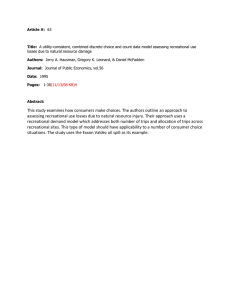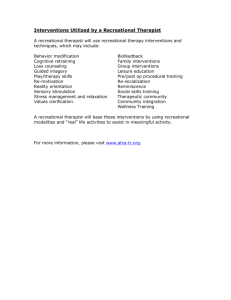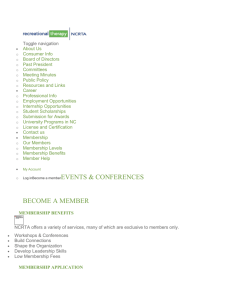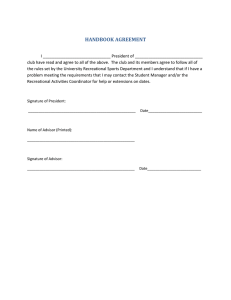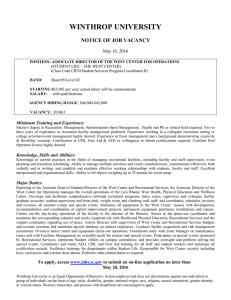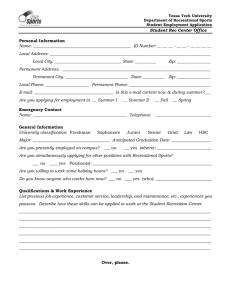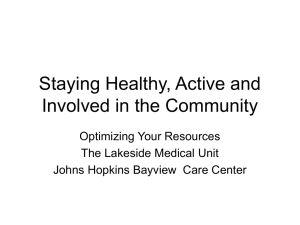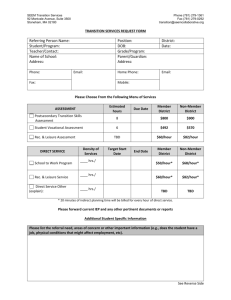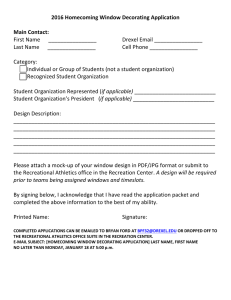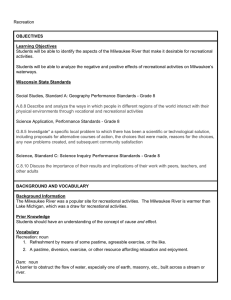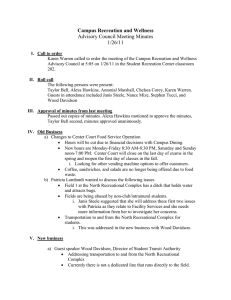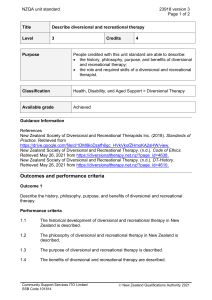College of Education & Allied Professions As of 07/21/2006
advertisement
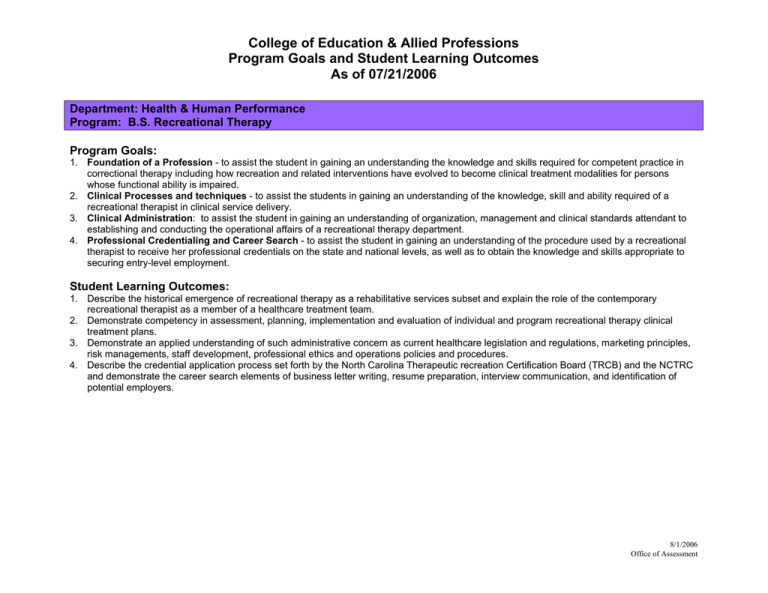
College of Education & Allied Professions Program Goals and Student Learning Outcomes As of 07/21/2006 Department: Health & Human Performance Program: B.S. Recreational Therapy Program Goals: 1. Foundation of a Profession - to assist the student in gaining an understanding the knowledge and skills required for competent practice in correctional therapy including how recreation and related interventions have evolved to become clinical treatment modalities for persons whose functional ability is impaired. 2. Clinical Processes and techniques - to assist the students in gaining an understanding of the knowledge, skill and ability required of a recreational therapist in clinical service delivery. 3. Clinical Administration: to assist the student in gaining an understanding of organization, management and clinical standards attendant to establishing and conducting the operational affairs of a recreational therapy department. 4. Professional Credentialing and Career Search - to assist the student in gaining an understanding of the procedure used by a recreational therapist to receive her professional credentials on the state and national levels, as well as to obtain the knowledge and skills appropriate to securing entry-level employment. Student Learning Outcomes: 1. Describe the historical emergence of recreational therapy as a rehabilitative services subset and explain the role of the contemporary recreational therapist as a member of a healthcare treatment team. 2. Demonstrate competency in assessment, planning, implementation and evaluation of individual and program recreational therapy clinical treatment plans. 3. Demonstrate an applied understanding of such administrative concern as current healthcare legislation and regulations, marketing principles, risk managements, staff development, professional ethics and operations policies and procedures. 4. Describe the credential application process set forth by the North Carolina Therapeutic recreation Certification Board (TRCB) and the NCTRC and demonstrate the career search elements of business letter writing, resume preparation, interview communication, and identification of potential employers. 8/1/2006 Office of Assessment
